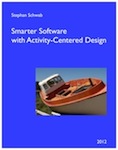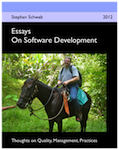Road trip with a surprise - Always carry your passport
This Saturday we decided to go on a road trip to visit a small village in the mountains of Veraguas province. It's a 3 hours drive from Panama City to get to Santiago (Google Maps), which is the capital of that province, and then you start climbing up the mountains on a winding road. Temperature is much cooler up there and all the modern infrastructure gets sparser and sparser. Movistar cellphones won't work there, as the only provider that has a transmission tower there is the incumbent Cable & Wireless.
Crowds walking on the highway
As we are not religious persons we didn't know that we selected the wrong day - so to say. When we left Panama City everything looked great. The first part of the trip had nothing out of the ordinary. Just boring driving along the highway between the towns of Arraiján (Google Maps) and La Chorrera (Google Maps) ($0.50 toll). Traffic was light as usual. But after Penonomé (Google Maps) things started to change. We saw more and more people walking on the shoulder of the two-lane Interamericana highway. Many wore a purple soutane with a golden cross on the front and back. Panama is a catholic country and apparently in the rural parts religion is strong while in the country's busy capital people just enjoy religious holidays with a nice BBQ or hanging out with friends.
Towards Santiago passing the towns of Nata (Google Maps) and Aguadulce (Google Maps) more and more crowds filled the highway shoulders and with them more and more police cars were on duty. They were actively picking out speeders using mobile RADAR equipment and the well-known speeding traps every driver loves so much. I can understand that they were enforcing the speed limits of 100 km/h outside towns and 50 km/h within city limits as so many people were out on the street. On the other hand seeing so many people walking on a major highway drives me crazy. They shouldn't be doing that. The Interamericana highway is clearly for cars and not a place where you should walk around. But Panama is a developing country and as in other countries that very same highway passes through people live alongside that road and cross it everyday running frantically for their lives. Here in Panama they have a lot of pedestrian overcasts though. Something I did not see in Costa Rica. Those overcasts are usually combined with a bus stop and, yes, they have built these things outside of towns near little villages or just a group of houses as well.
Turnoff to Sante Fe
Finally we made it to Santiago and approached the unmarked turnoff to Sante Fe (Google Maps). There is no sign telling you where to turn. You have to develop a feeling for such things. Santiago is a small town and has a big overcast crossing the Interamericana right in the middle of it. That's where you turn.
Roadblock and ID check in the middle of the mountains
We were tired of 3 hours very careful driving and expected that we won't see any crowds on the road neither police officers behind every other tree. Little did we know. After about 20 minutes following the winding road (picture) up the mountains we encountered a "roadblock" consisting of a single police officer with his motorcycle checking the drivers license of everyone coming his way. It's not the first time someone wants to see my license in Latin America or Panama. Police frequently does this as there are many people driving around without a license or drunk. Once you show your foreign drivers license they wave you through and say some kind words to you the tourist who spends money in their country. That makes sense. But not this time.
Instead of waving us through this police offer asked for our passports. What? There we were in the middle of the mountains (picture, picture) in a rental SUV clearly identifiable as tourists by our different looks and by the camera, of course, and this guy wants to see our passports to check whether we are legally in Panama. That guy was not joking but bloody serious. For a second the thought of stepping on the gas hit my mind, but as he was armed and the mountain road we were on is a dead end - Santa Fe is the last town and beyond that point on the other side of the mountain lies the real jungle - I just kept asking what's the purpose of this. Nothing got him to change his mind and we found ourselves following a law enforcement officer on his bike to the nearest station. Luckily for us the only station nearby is not far from the point where he stopped us and on track to Santa Fe. So we decided to calm down and enjoy what was going to happen.
The police station was a simple flat concrete building with a chair, a desk and a telephone manned by a young man in khakis and a black T-shirt. A very relaxed guy compared to the traffic cop. After some arguing back and forth and the traffic cop trying to convince the other guy that we indeed did something wrong a phone call to some superiors were made. During the conversation, which we followed standing in the door, the young guy reported that everything were ok, no offense has been made, my license were valid and apparently on the other side of the line nobody could really understand what's that all about. Everybody but the traffic cop was happy. He lost patience and grabbed the phone to insist on the law that every foreigner has to carry a passport and we did violate that law and something had to be done. Apparently he didn't want his last chance for a catch go away.
Nobody ever asked for a bribe. I believe that traffic cop was under some scrutiny from his superiors and they had assigned to him the mountain road during this Saturday's campaign. Unhappy and without a chance to report anything he picked on us. The young officer from the station apologized to us after his colleague left. He explained that the traffic cop works for another branch of the police and they usually were a bit strange. He gave us directions to Santa Fe, apologized again and wished us a nice stay in his country.
What the law actually says
The traffic cop was right. In all the countries that know a national ID there is a law that everybody has to carry an ID when outside their home. It's the same law in many European countries, such as my home country Germany, and as the nations in Latin America modeled their own laws based on European law, there is no difference. Citizens need to carry their ID card - all spanish speaking countries call that ID cedula - and foreigners need to carry their passport. It's the passport and not other kinds of IDs like US drivers licenses, because the only foreign legal document countries recognize without special treatment is the passport invented for international travel. So the traffic cop was right, but still did something stupid. His job is not to find illegal immigrants but enforce traffic laws. Offending foreign visitors and taking them to the station is not what the government wants him to do.
Tip
Never carry your passport when you leave your hotel. If you loose it, you are in big trouble. You can't leave the country you are visiting and it might take a long time until your embassy issues you a replacement. Instead carry photocopies of all the pages of your passport - don't forget the one with the stamp showing the date you entered the country. That might not save you from the cop out on the street, but at least you have some proof with you. You should know the emergency phone number of your embassy as well - just in case.
| Previous | 26 Feb 2007 | Next |
This article has been posted to social media sites. There might be comments. Just follow the links:








